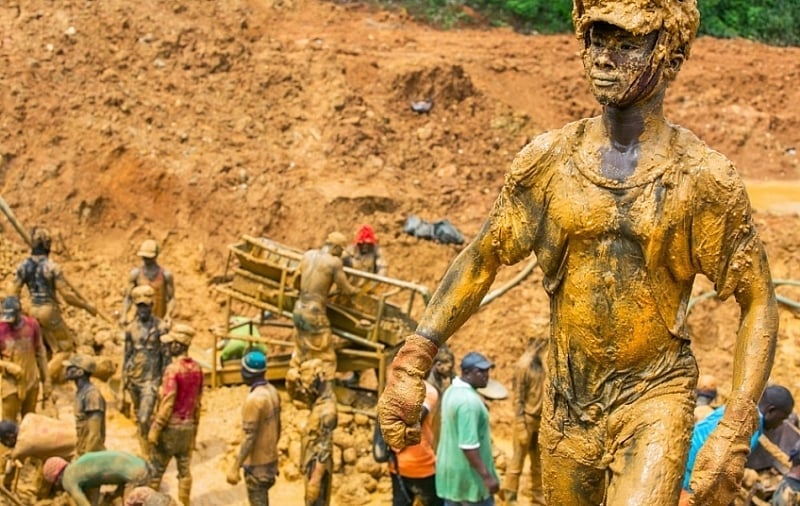Eco-Conscious Citizens, an environmental advocacy organization, has articulated a strong stance against small-scale and community mining activities in Ghana to combat illegal mining, commonly referred to as galamsey. In a press release dated October 16, the group urged the government to not only halt these mining activities but also to stop the issuance of new mining licenses. Furthermore, they called for the declaration of a state of emergency as a necessary measure for the protection and preservation of the nation’s natural resources. This appeal comes in light of their disappointment that Organised Labour had recently suspended its nationwide strike, which was aimed at addressing various concerns related to galamsey, without achieving comprehensive results. Eco-Conscious Citizens praised the University Teachers Association of Ghana (UTAG) and the Technical University Teachers Association of Ghana (TUTAG) for their ongoing commitment to strike, aligning themselves with the advocacy for greater environmental protection.
At the core of the group’s demands is the need for the government to declare a state of emergency, which they argue is essential to effectively halt mining operations in protected areas. Eco-Conscious Citizens believe that the current measures in place are inadequate to tackle the considerable destructive impact that mining activities have on the environment. Their assertion emphasizes that without stronger, more immediate actions, such as an emergency declaration, the ongoing environmental degradation will not only persist but likely worsen, thereby threatening Ghana’s ecological balance and the livelihoods that depend on healthy ecosystems.
In their press release, Eco-Conscious Citizens also urged all political candidates and aspirants to publicly commit to the restoration of Ghana’s vital natural resources, including water bodies, forests, and agricultural lands. They highlighted the importance of accountability and called for a shared responsibility among political leaders in addressing the environmental crises. The group underscored the need for a collective commitment to uphold the ‘Polluter Pays’ principle, which implies that those who cause environmental harm should bear the financial burden of repairing that damage. This demand for accountability aims to ensure that any future policies regarding mining and environmental protection are not only effective but also sustainable.
Additionally, the organization has called for thorough investigations into individuals implicated in the report compiled by Professor Frimpong Boateng on galamsey activities, whom they have labeled as “environmental terrorists.” This call for investigation signifies the group’s intent to hold responsible parties accountable for their actions that have led to significant environmental damage across the country. By targeting these individuals, Eco-Conscious Citizens hope to curb the influence of those who prioritize profit over ecological integrity, and to establish precedent for a stricter regulatory environment concerning mining operations.
The struggle against illegal mining in Ghana is intricate, with significant implications for environmental sustainability, public health, and socio-economic structures. Eco-Conscious Citizens’ push for government action highlights the urgent need for a multi-faceted approach to address illegal mining and its repercussions. Their focus on restoring and maintaining natural resources places emphasis on the interconnectedness of environmental health and community well-being, advocating that effective policies can lead to both ecological preservation and long-term economic stability for the populace.
In conclusion, the call to action initiated by Eco-Conscious Citizens reflects growing concerns over illegal mining practices and their adverse effects on Ghana’s environment and society. By insisting on the suspension of small-scale mining, the declaration of a state of emergency, and the accountability of political figures and implicated individuals, the group is positioning itself as a crucial stakeholder in the fight for Ghana’s environmental future. Their efforts embody a broader movement toward eco-conscious governance, where the preservation of natural resources is prioritized in the face of industrial pressures and political inertia. Ultimately, their demands aim not only to address current environmental crises but also to lay the groundwork for sustainable practices that ensure the well-being of future generations.














